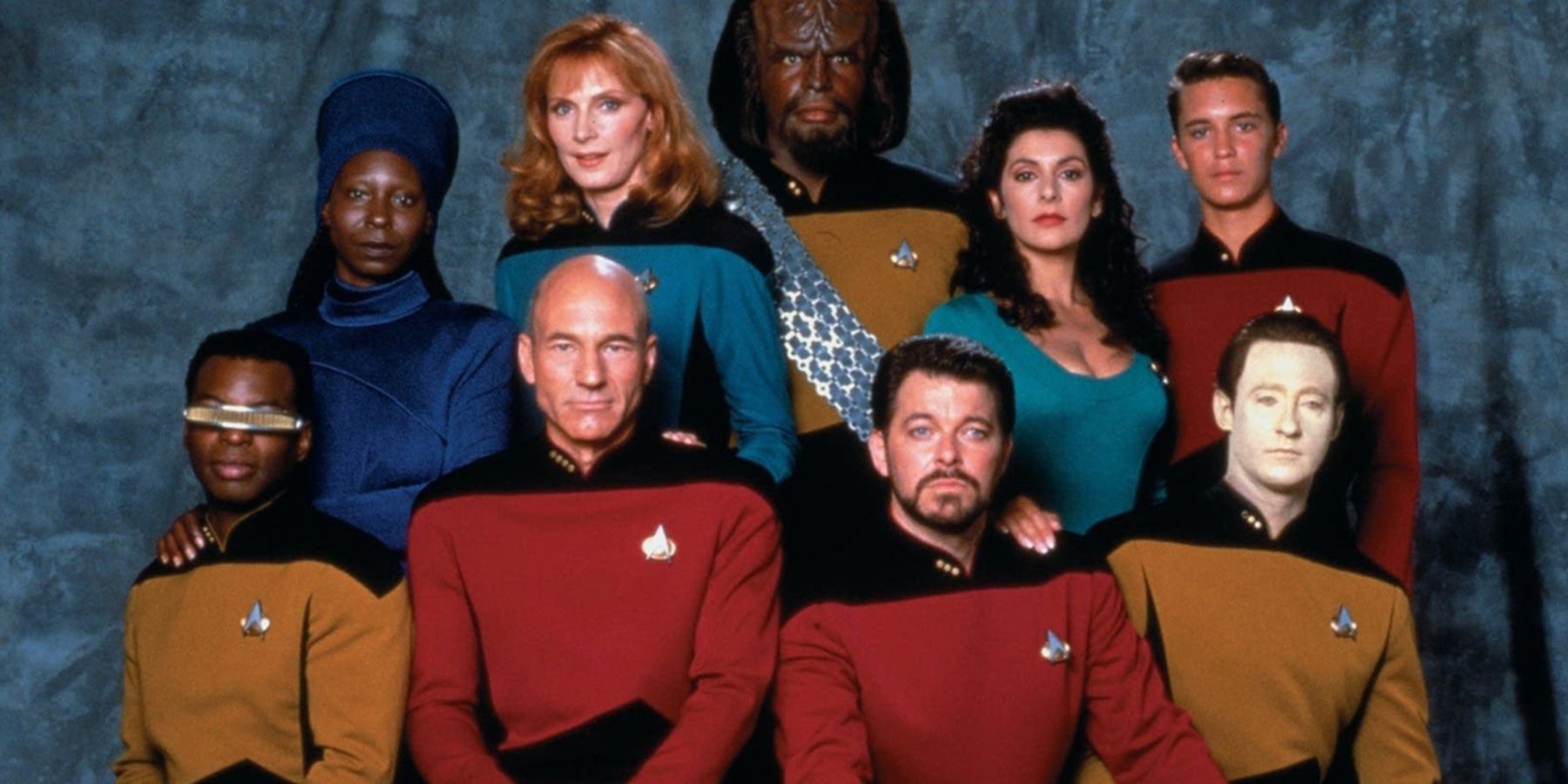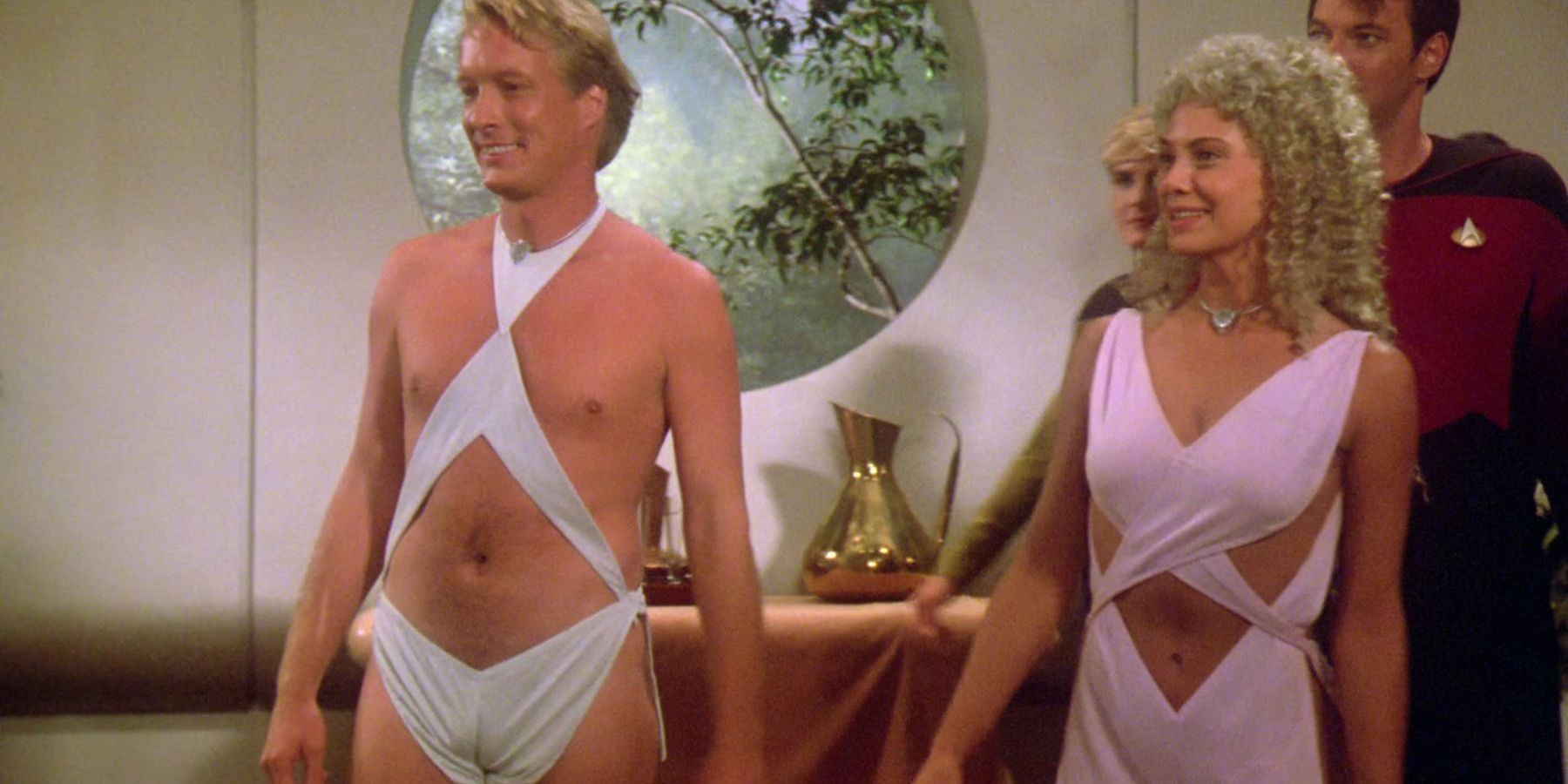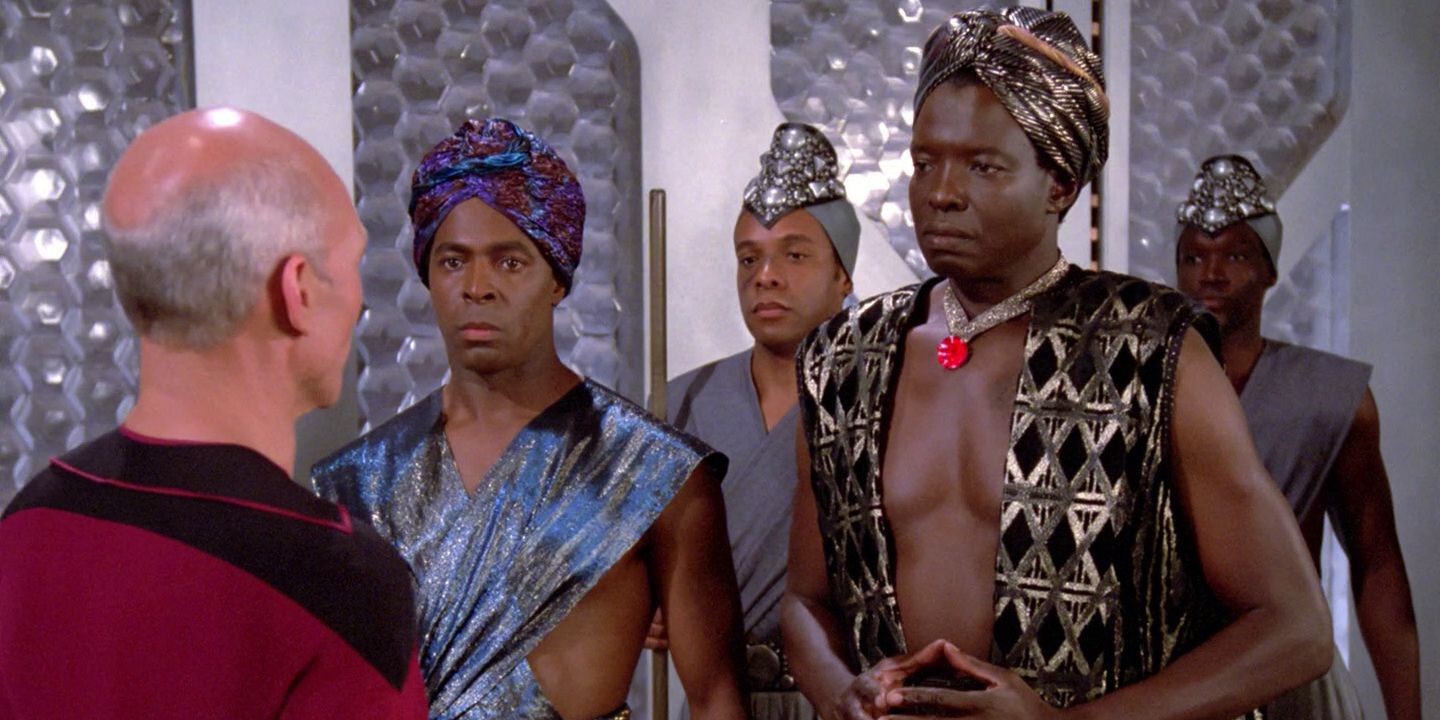Star Trek has become one of the greatest staples of science fiction media since its creation in the 1960s, amassing a whopping 12 different television shows and 13 different movies. Some of these shows were better received than others. The Original Series was a sometimes cringe-worthy affair, but was the start of the legacy; meanwhile, Voyager has been a particularly sore spot with some fans. Some shows, however, are remembered much more fondly.
One of the most beloved Star Trek shows isThe Next Generation with Sir Patrick Stewart's iconic re-imagining of what it means to be a Starfleet captain. Despite it generally being well received, the first season of TNG really didn’t live up to the shows' legacy; in fact, it is home to some of the worst episodes in the franchise's history. This begs the question: how did the show improve so much come Season 2, to become the legend it is today?
The biggest reason is unfortunately down to creative disagreements between creator Gene Roddenberry, the studio Paramount (whose streaming service now hosts all things Star Trek) and the writers. Roddenberry had struck gold with The Original Series, but it was a product of its time. It was slow and political, often a masterpiece in story telling, but it was dated by the time TNG came around. He created Star Trek with a very specific idea in mind, one of a utopian future where cultural diversity and conflict, at least on earth, were all things of the past.
Roddenberry became an obsessive micromanager when it came to writing the show, something that only got worse when TNG was being filmed. He had a very strict view on narrative and characters, wanting all the Federation officers to avoid conflict at all cost, a natural result of them being far more evolved people than the humans of today. He wanted a show that was void of military conflict. This concept sounds great on paper, with everyone coming together to solve political, scientific, and societal problems together as a team, rather than resorting to violence. However, it made for some rather boring episodes.
Another reason why the first season of TNG was poorly received what that some episodes made audiences, writers, and cast feel a little uncomfortable. It’s been remarked that, while Roddenberry was great for a lot of reasons, he had a habit of sneaking in some of his personal fetishes into the show. Referring to it as such might be going a bit far, but it’s fair to say that when looking at episodes such as “Justice” and “The Naked Now”, there is a lot to make people feel somewhat uncomfortable, especially when watching with parents.
Roddenberry insisted on the scantily clad themes as well as the strict adherence to the no-conflict rules, but when Paramount would put their foot down and insist on the occasional transgression against his wishes, Roddenberry would send his lawyer. He would also often go behind writers' backs to change the scripts to whatever he saw fit. The result was a season of strangely written scene and uncomfortable moments that didn’t ever fit together quite right.
This all changed when the show entered its second season, and the difference was seen instantly. Due to his faltering health, Roddenberry had to step away from Star Trek, leaving the show in the capable hands of their new head writer Michael Piller. Piller not only came to the show at the right time, able to write the stories he wanted without the micromanaging, but also brought with him a genuine enthusiasm and love for the universe the entire crew needed. He was obsessed with continuity (something arguably lacking today) and pumping in as much detail as possible, insisting everything would make sense in-universe. He pushed for more complexity in the narratives, exploring new, existing, and topical themes, as well as believing firmly in character development. He also saw the benefit in using conflict to bring action into the show, drawing audiences in rather than keeping them at arm's length.
It’s ironic, however, that one of the other big changes made after Roddenberry departed the show in Season 2, was something that made the show feel more like Star Trek. The Original Series was created to show a utopian future devoid of racial tensions and diversity issues, shown though their diverse leading cast. It was all about love, empathy, and acceptance, so it came as a big surprise that the first season of TNG hosted what could possibly be the most racist and anti-Semitic episodes in the entirety of Star Trek history. The episodes in question are “The Last Outpost,” which introduced the Ferengi, and “Code of Honor.”
The Ferengi have been criticized massively over the years for being a thinly veiled anti-Semitic stereotype, and “The Last Outpost” did them no favors. They were shown as hissing and goblin-like, afraid and scurrying like rats caught in the headlights, instead of the highly advanced race they were, capable of warp and a highly complex (if not problematic) social structure. “Code of Honor” was also, to quote the one and only Johnathan Frakes, “A racist piece of sh*t.” The episode showed an all-black cast play a stereotyped alien race of African tribal reminiscent people, who end up kidnapping Tasha Yar, the blonde white security officer. This all happened under Roddenberry’s watch, but luckily Russ Mayberry, the writer for “Code of Honor” was fired, and a new era of Piller-led writers was born.
It’s hard to see the ideas and beliefs of an original creator get in the way of the successful trajectory of a project. Audiences see this all the time, even today with issues surrounding J.K. Rowling training the once-safe space of the Harry Potter universe. While Roddenberry acted as an obstacle far less problematic, he was primarily the reason the first season of TNG felt a little weird. It was an easily forgettable season, saved only by a few fleeting moments and the introductions to some unique and interesting characters. Thankfully, once Roddenberry stepped away, the show could adapt to modern audiences and appeal to a whole new group of people. People often wonder what Roddenberry would think of the more modern Star Trek iterations, which have veered far off from his original vision, but at the end of the day sometimes it’s better for a parent to watch their child grow and change.



